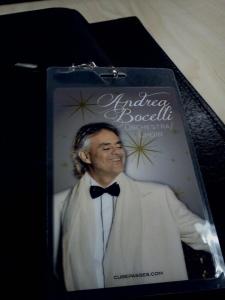The “Tuba Mirum” section from Mozart’s Requiem begins with a series of solos, with tenor and alto solos back-to-back. A little too timidly, I explained that I wanted to audition for both vocal parts. Norman Scribner raised his eyebrow at me looking unconvinced, but prepared to play the passage I’d marked.
I was in the hall at St. Alban’s Episcopal Church in Washington, DC, auditioning for the Choral Arts Society of Washington. After finishing grad school, I finally had some free time in the evenings after work, and wanted to get back to singing in some way. I missed singing with other people. I hadn’t auditioned for anything since college and felt completely out of practice. I’d torn our townhouse apart looking for sheet music and cursed myself for having no idea where any of it had gone. The Requiem was the only appropriate piece of music I even had in my possession to use for a choral audition.
Maestro Scribner gave me a few bars to get a sense of the pace he was playing, and offered another lift of his eyebrow to cue me in. Fortunately the tenor solo came first, giving me a chance to ease into my voice and calm my heart rate. I made a quick jump at the end of the tenor solo into the alto part, and I knew I’d won him over as a rather sly grin made its way across his face.
He laughed when I finished. “Well that’s just fantastic,” he said. We did some scales and rhythm exercises (the latter I totally bombed), then he told me there were still several weeks of auditions, so I probably wouldn’t hear anything for a few weeks. I thanked him for the opportunity and went on my way.
A few days later, I headed to Pittsburgh to visit my family. I got a phone call, and when I picked up, it was Norman. “Is this Christina?”
“Yes,”
“Hi, Norman Scribner from Choral Arts. Is this a good time?”
“Sure.”
“I keep thinking about your audition. I just think, I think you have something really special. You have a really unique voice. I’ve never heard anything like it. I don’t need any altos right now, but would you join Choral Arts as a tenor? I’d really like to have you.”
All I know is that I said yes, and that he thanked me. My brain almost went blank for the rest of the conversation. He was so utterly confident in my voice and that I’d be a good fit for the sound of the choir. It was beautifully humbling.

Suited up for my first concert. The whole “being a tenor” thing helped me dodge buying a long blue choir dress and jacket.
Over the next ten months, I spent a great deal of time working with, and learning from Norman. He guided us through rehearsals for Orff’s Carmina Burana, an “Homage to Modern Classics” concert featuring Bernstein’s Chichester Psalms, Stravinsky’s Symphony of Psalms, Prokofiev’s Alexander Nevsky, and Lauridsen’s Lux Aeterna, a Christmas concert full of Russian carols, the annual “Living the Dream…Singing the Dream” Martin Luther King, Jr. tribute concert, and finally Brahms’ Ein Deutches Requiem.
He guided a smaller group of us who volunteered through rehearsals to sing with Andrea Bocelli as his back-up choir when he came to perform at the Verizon Center in DC. Oh, how patient he was as we attempted to not mangle the “Triumphal March” from Aida, which seemed to split into about a million parts.
There were also the numerous “Tenor and Bass Only” rehearsals during Carmina Burana where we’d fly through “In Taberna” over and over and over again until we stopped tripping over our tongues. Norman always had a moment to laugh with us during what could have been a redundant chore, but just as quickly, it was back to business.
I introduced him to my parents when they came to see one of our concerts and he repeated to my mother what a “unique treasure” of a voice I had. Every time he stood before us in The Kennedy Center and waited patiently for us to calm the chatter (oh come on, over 100 singers on one stage fidgeting around at dress rehearsal is a haven for good conversation), I felt the presence of something very special.
He drew sound out of us with his baton, and launched it across the walls of the Kennedy Center like a brilliant painter. He brought confidence and joy back into my voice when I wasn’t so sure I still “had it” anymore.
I am so utterly grateful to have known Norman Scribner. When I heard of his passing today, I could only hug my husband close to me, and cry for the loss of this heart and soul full of song. I feel blessed to have known him, blessed to remember that phone call, and in awe of his service to Choral Arts and music as a whole.
This article was published shortly before the last concert Norman conducted as Choral Arts’ director. It says more about his legacy in Washington, nationally, and abroad than I can possibly say. I know his spirit will live on in the lives of every person he shared time and music with, and am glad to be counted as one of his students.

Norman Scribner, founder and Artistic Director Emeritus of the Choral Arts Society of Washington. February 25, 1936 – March 22, 2015
May you be at peace, Norman. Alleluia. May flights of angels sing thee to thy rest.












Leave a comment